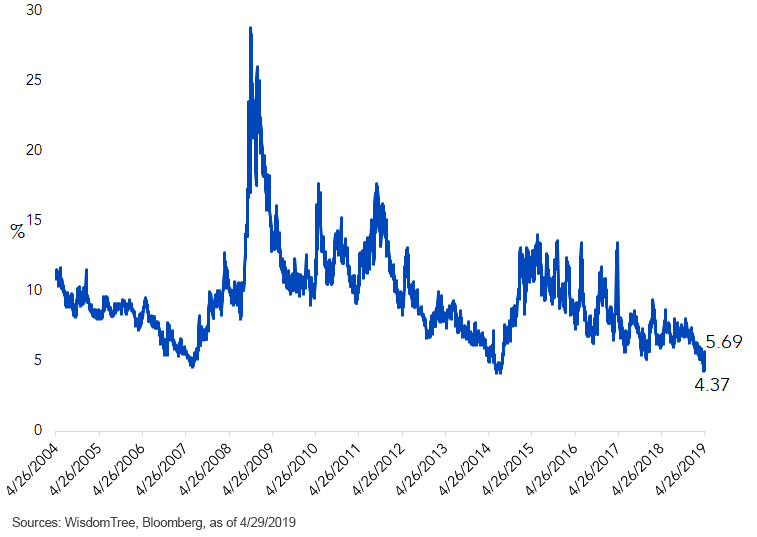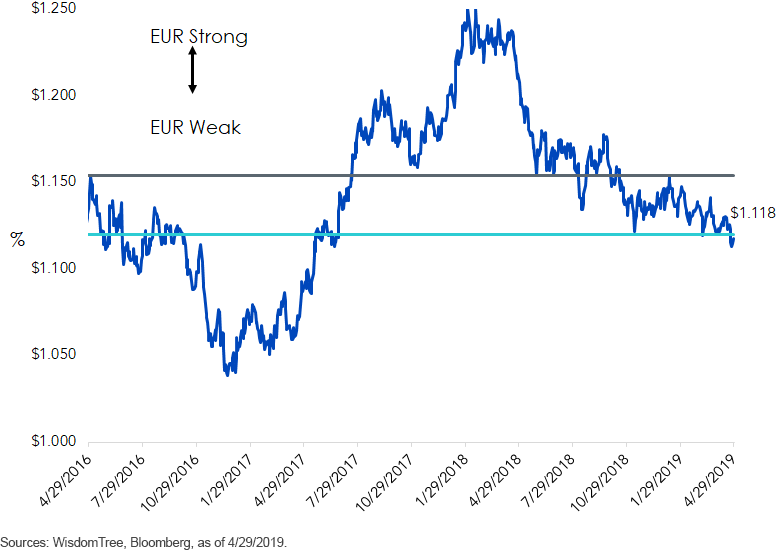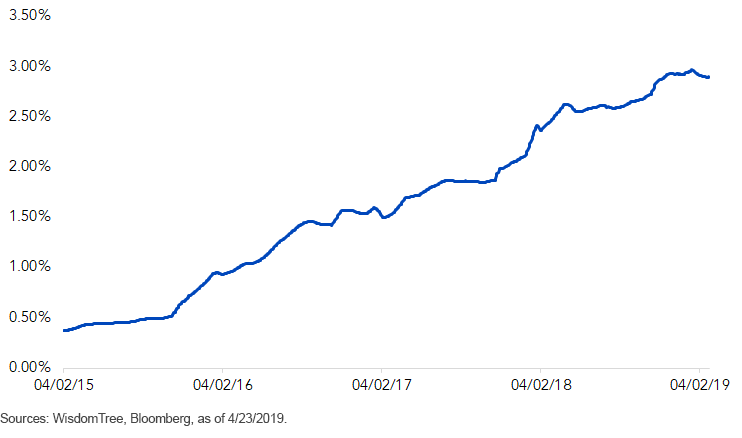Generational Lows in Euro Volatility


It seems like the euro was pinned between $1.12 and $1.15 for ages. It’s not alone—think of the stubborn pound sterling, which has been unwilling to move up or down, even amid the Brexit telenovela.
Hard to believe, but the S&P 500 surged nearly 26% between Christmas Eve and April 26. In forex, bonds, stocks, you name it—complacency has taken over
Here it is, a possible triple bottom in front-month EUR volatility, put in just a few sessions ago:
Figure 1: Euro 1 Month At The Money Implied Volatility

Notice that volatility popped a tad as the bottom of the $1.12 to $1.154 trading range got pierced.
Figure 2: EUR

To be sure, the U.S. dollar isn’t the portrait of health either. The U.S. current account deficit is troubling, and the federal budget deficit is ugly even before Washington rains more spending on health care, student loans and the like.
But EUR is looking at the day-to-day, not the structural issues. I don’t think the main driver right now is this spring’s European parliamentary elections; the market knows that populists are set to make big gains. Recent action also probably has little to do with European Central Bank (ECB) president Mario Draghi being replaced this October, though the Street hasn’t the foggiest idea who will get the nod.
Crude oil, now that’s the driver. We may be on the cusp of $100 barrels being discussed in polite circles. That every-few-years Strait of Hormuz shutdown threat from Iran is again on the table now that the U.S. ended waivers for a half dozen nations that were still buying from the Islamic Republic. China was one of them, and Beijing isn’t happy about the new development. Fraught Sino-U.S. relations did EUR no favors last year.
Finally, keep an eye on the UN’s “International Maritime Organization 2020” environmental regulations. I think it’s a much bigger deal than the market appreciates. If diesel prices rise because of it—and Europeans cars are all about diesel—bring back the gilets jaunes (yellow vest) protests.
Let’s end with a WisdomTree classic. The carry between EUR and USD short rates has melted higher since the Federal Reserve started tightening policy in December 2015. Getting paid that carry to stem the risk of a volatility and/or oil shock seems logical here.
Figure 3: Euro Hedge Embedded Interest Rate Differential

Unless otherwise stated, all data in this blog from Bloomberg, as of 04/26/2019.


